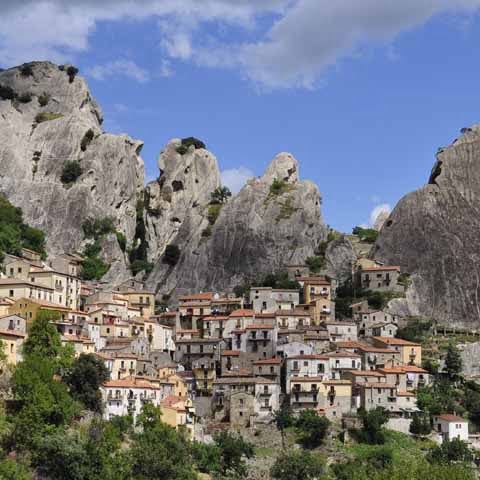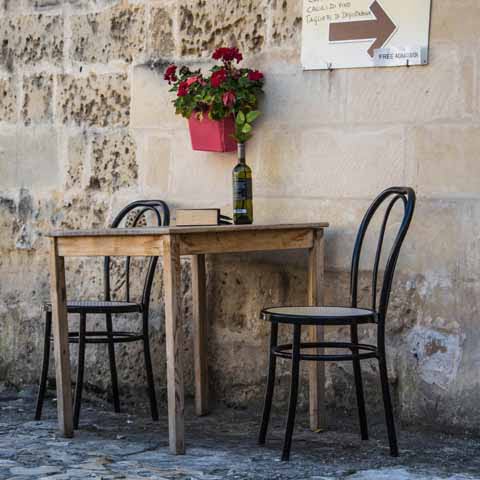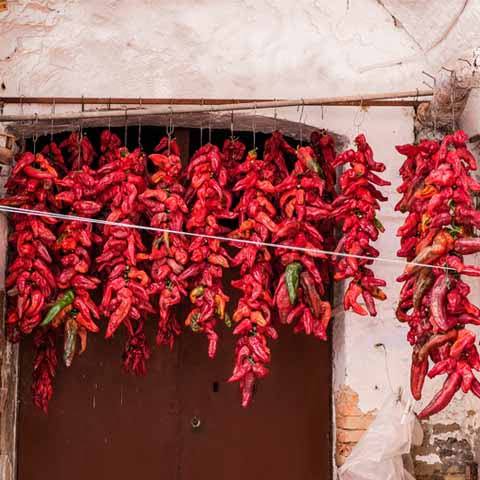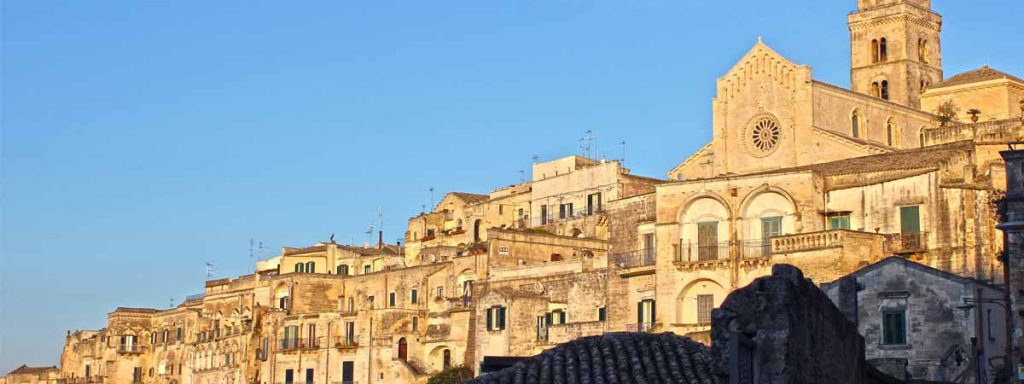Located in Southern Italy is the charming and ancient town of Potenza. Deep in the heart of the mostly rural province of Potenza located in the region of Basilicata, this town is near the rugged Apennine Mountains and its soft green valleys. This beautiful city on a hill is truly a thriving center of history and culture for the region.
Potenza was originally settled under the Latin name of Potentia in ancient times. Throughout the ensuing centuries, the city came under various regimes during the Middle Ages and beyond, until the Unification of Italy in the nineteenth century. A series of damaging earthquakes and bombing damage from World War II left many of the city’s original landmarks and monuments in ruins. Recovery efforts have been successful, and the city is still blossoming today, finding new and modern ways to flourish.
With a population in excess of sixty-six thousand people that inhabit roughly sixty-seven square miles, it is no surprise that Potenza is the largest city in all of Basilicata as well as the region’s capital. In addition, the city is the capital of the province of its namesake. But do not let the large number of people living inside the city limits fool you into thinking they are far removed from welcoming travelers. The people of Potenza are often considered by travelers to be some of the warmest and most friendly in all of Italy.
In some ways, Potenza is considered to be a bit of a college town as it is home to the main site of the University of Basilicata, which was established in the late twentieth century. The university welcomes, on average, a little over six thousand students and six hundred employees onto its campuses each year. The school is known for its focus on science, technology, arts, and humanities.
The most efficient transportation method to reach the city is via car, either rental car or private driver. Though Potenza sits on the main rail line that stretches from Salerno to Taranto, be forewarned that there are only a few trains that make their way to the city from other nearby provinces, and the area is not served by Italy’s highspeed trains. If you are hoping to fly into Potenza, the closest international airports are in the cities of Naples and Bari.
When it comes to making your way around the city proper, buses, cars, and pedestrian traffic are all popular modes of transportation. The city streets are conducive to seeing much of the city by bus or car, however, many visitors often opt to see the sights on foot or rent a bicycle or scooter for their local outings.
GEOGRAPHY
At around twenty-six hundred feet above sea level, Potenza is considered to be the highest regional capital and one of the highest cities in all of Italy. With its naturally elevated position, the city overlooks the gorgeous valley of the Basento River in the Apennine Mountains of Lucania.
CLIMATE
Overall, the city of Potenza enjoys a warm Mediterranean climate. The summer months are by far the warmest and usually the driest. In the summer, the city can average highs in the upper seventies (degrees Fahrenheit) with lows in the upper fifties. The rest of the year vacillates between highs close to the fifties and lows that are above freezing. Potenza has the best of both worlds with the summers being warm and the winters chilly.
Precipitation in the area is fairly average. Most months, rain totals are between one and two inches. If you are planning a trip to Potenza, it is worth noting that the summer months are generally the warmest and the driest.
WHEN IN POTENZA
The city of Potenza is highly unique in that it is divided primarily into two parts, an upper town and a lower town. The more ancient and historic part of the city sits perched on the top of a rather steep hill and is focused largely on the public life of its people. The lower town generally lies just beneath the upper town and is more similar in appearance and culture to that of a suburb.
Because much of the city of Potenza exists literally on two different levels, it is home to a vast amount of stairways that connect the upper town to the lower town. While cars and buses are able to navigate the city easily for the most part, it is far more challenging to do so in the upper town where the streets become quite narrow.
As a solution for these woes, the city established a grand escalator system to help locals and visitors alike better navigate the town. Potenza boasts that it is home to one of the longest escalator systems in the world at more than four thousand two hundred feet long. There are several escalator transit lines that are clearly marked with grandeur at the entrance, complete with a ticket booth.
While the escalator system is unique and different, it is not considered a particularly fast way to traverse the city and riders must stand for the duration of their ride. However, there are frequent landings between escalators that keep the transport from being one long, continuous ride. In general, locals tend not to use this transportation as frequently as their out-of-town guests.
As the capital of the Basilicata region, Potenza is an excellent place to get to know the unique culture of Southern Italy. The city, which consists of an upper and lower town with an extensive escalator transportation system, is unlike any other in Italy.
*SPECIAL NOTE: While it is true the Italian city of Potenza has experienced major devastation from a series of earthquakes over the years, the town continues to both rebuild and thrive. Some of the monuments and landmarks included in the narrative above may be described in their pre-earthquake condition.Travel Guides
The Basilicata Region of Italy
The Cities of Basilicata, Italy



